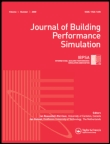
Journal of Building Performance Simulation
Scope & Guideline
Innovating Building Performance with Peer-Reviewed Research
Introduction
Aims and Scopes
- Building Energy Modeling:
Research in this area emphasizes the development and application of models to predict energy consumption, thermal performance, and environmental impact of buildings, using both traditional and advanced simulation techniques. - Machine Learning and Data-Driven Approaches:
This scope includes the use of machine learning algorithms to improve building performance predictions, optimize control strategies, and analyze occupant behavior, highlighting the journal's commitment to innovative computational methods. - Thermal Comfort and Indoor Environment:
Papers often explore the relationship between building design, thermal comfort, and indoor air quality, focusing on how these factors affect occupant satisfaction and health. - Resilience and Adaptation to Climate Change:
This area addresses the need for buildings to adapt to extreme weather events and climate change through innovative design and retrofitting strategies, ensuring long-term sustainability. - Integration of Renewable Energy Systems:
Research frequently investigates the incorporation of renewable energy technologies, such as solar and geothermal systems, into building designs, assessing their performance and impact on energy efficiency. - Building Simulation and Control Strategies:
The journal emphasizes advancements in simulation tools and control methodologies, aiming to enhance operational efficiency and energy management within building systems.
Trending and Emerging
- Advanced Machine Learning Applications:
Recent publications increasingly leverage advanced machine learning techniques for predictive modeling and optimization in building performance, reflecting a broader trend towards data-driven approaches in the industry. - Digital Twin Technology:
The emergence of digital twin methodologies for real-time performance monitoring and simulation in buildings is a growing focus, indicating a shift towards integrated and responsive building management systems. - Resilience Planning and Climate Adaptation:
With climate change posing significant challenges, the journal is seeing a rise in studies that address building resilience and adaptation strategies, emphasizing the importance of sustainable design practices. - Occupant-Centric Design and Control:
Research is increasingly focused on occupant-centric approaches that prioritize user comfort and behavior, utilizing smart technologies to tailor building environments to individual needs. - Integration of Renewable Energy and Smart Grids:
There is a notable trend towards exploring the integration of renewable energy systems and smart grid technologies within building performance simulations, reflecting a growing emphasis on sustainability and energy independence.
Declining or Waning
- Traditional Energy Efficiency Metrics:
There has been a noticeable shift away from conventional metrics for assessing energy efficiency, as newer methodologies and machine learning approaches gain prominence, rendering older methods less relevant. - Generalized Occupant Behavior Studies:
Prior research often generalized occupant behavior without specific context; however, the trend is moving towards more nuanced, data-driven studies that consider specific demographics and behaviors, leading to a decline in broad occupant studies. - Static Building Performance Assessments:
Static models that do not account for dynamic variables or real-time data have become less favored, as the field increasingly values adaptive and responsive simulation techniques. - Basic HVAC System Evaluations:
Research focusing solely on traditional HVAC systems without integrating smart technologies or advanced controls is becoming less common, as the journal emphasizes innovative control strategies that enhance energy performance.
Similar Journals
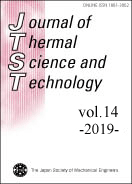
Journal of Thermal Science and Technology
Unveiling high-impact research in the heart of thermal engineering.Journal of Thermal Science and Technology, published by the Japan Society of Mechanical Engineers, is a distinguished open-access journal that has been serving the academic community since its inception in 2009. With a commitment to disseminating cutting-edge research in the realms of thermal science and its engineering applications, the journal has established itself as an essential resource for researchers, professionals, and students alike. Holding important quartile rankings in 2023, including Q3 in Atomic and Molecular Physics, Engineering (miscellaneous), and Materials Science (miscellaneous), this journal showcases high-impact studies that contribute to the advancement of technology and materials engineering. Open access since 2021, it aims to enhance the visibility and accessibility of critical research findings, thus fostering innovation and collaboration within the global scientific community. The journal’s dedicated editorial board actively seeks to publish novel insights that not only engage with existing challenges but also inspire future developments in thermal science and technology.
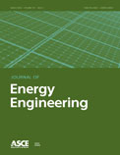
JOURNAL OF ENERGY ENGINEERING
Unveiling the Future of Energy EngineeringJOURNAL OF ENERGY ENGINEERING, published by the ASCE-Amer Soc Civil Engineers, serves as a pivotal resource in the fields of civil and structural engineering, energy engineering, and nuclear energy research. With an ISSN of 0733-9402 and an E-ISSN of 1943-7897, this esteemed journal demonstrates a consistent commitment to advancing knowledge in energy systems, sustainability, and waste management. Ranking within the second quartile in several categories—including Civil and Structural Engineering and Energy Engineering and Power Technology—this journal maintains a strong reputation, underscored by its Scopus rankings that place it in the top tiers of its discipline. Accessible from 1982 through 2024, the journal provides researchers and professionals meaningful insights through rigorously peer-reviewed articles, critical reviews, and case studies that address contemporary challenges in energy utilization and infrastructure development. Without open access options, it ensures the integrity and credibility of published work, showcasing influential research that contributes to sustainable solutions in energy and environmental frameworks. Researchers, professionals, and students alike will find the JOURNAL OF ENERGY ENGINEERING an indispensable platform for exploration and dissemination of innovative ideas within the realm of energy and engineering.

Journal of Green Building
Advancing Sustainable Architecture for a Greener TomorrowJournal of Green Building, with its ISSNs 1552-6100 and 1943-4618, is a premier academic journal published by COLLEGE PUBLISHING in the United States. This journal, established in 2006 and continuing through 2024, serves as a vital platform for the dissemination of research on sustainable architecture, building technologies, and environmental design. With its current impact factor signifying a robust academic contribution, it is categorized in Q2 in Architecture and Q3 across several other disciplines, including Building and Construction, Environmental Engineering, and Public Health. The journal’s Scopus rankings demonstrate its strong positioning in the engineering and environmental science communities, making it an essential resource for researchers and professionals aiming to advance knowledge in green building practices. While it is not an Open Access journal, the rich content is pivotal for those involved in the critical intersection of sustainability and construction science. Whether you are a seasoned professional or a dedicated student, the Journal of Green Building offers invaluable insights that drive future innovations in eco-friendly building environments.
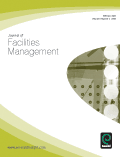
Journal of Facilities Management
Exploring the Dynamics of Facilities Management ExcellenceThe Journal of Facilities Management, published by Emerald Group Publishing Ltd, is a premier scholarly platform dedicated to the evolving field of facilities management. With an ISSN of 1472-5967 and an E-ISSN of 1741-0983, this journal has established itself as a crucial resource for researchers, practitioners, and students alike since its inception. Operating within a robust academic framework, the journal holds a commendable Q2 ranking in various pertinent categories including Business and International Management, Management of Technology and Innovation, and Strategy and Management, reflecting its impact and relevance in these domains. The journal invites high-quality, interdisciplinary research that addresses the complexities of facilities management, providing insights and practical solutions that benefit organizations worldwide. Although not open access, the Journal is committed to maintaining academic rigor and accessible knowledge dissemination through its articles, which are meticulously reviewed by experts in the field. As it continues to evolve through its converged publication years of 2002 to 2003 and 2005 to 2024, the Journal of Facilities Management stands out as an essential resource for those seeking to enhance their understanding and practice of effective facilities management.
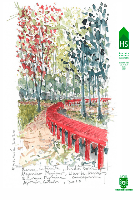
Revista Habitat Sustentable
Empowering Change through Sustainable Habitat InsightsRevista Habitat Sustentable, published by UNIV BIO-BIO in Chile, is a dynamic open access journal that has been contributing to the fields of architecture, engineering, and sustainable development since its establishment in 2011. With an ISSN of 0719-0700, this scholarly platform stands out for its commitment to disseminating high-quality research that addresses pressing issues in sustainability and urban planning. Currently, it holds commendable rankings in several categories, including Q2 in Architecture and Q3 in Urban Studies, reflecting its growing influence and outreach across various disciplines. The journal's mission is to foster interdisciplinary dialogue and encourage innovative approaches to habitat sustainability, making it an essential resource for researchers, professionals, and students engaged in addressing the complex challenges of our built environment. Accessible to a global audience, the Revista Habitat Sustentable is poised to play a pivotal role in shaping future research and policy in sustainable living and development.
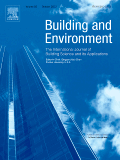
BUILDING AND ENVIRONMENT
Exploring the synergy between construction and environmental stewardship.BUILDING AND ENVIRONMENT, published by Pergamon-Elsevier Science Ltd, stands as a premier journal in the fields of Building and Construction, Civil and Structural Engineering, Environmental Engineering, and Geography, Planning, and Development. With its ISSN 0360-1323 and E-ISSN 1873-684X, this esteemed publication has garnered significant acclaim, achieving a Q1 ranking in multiple categories for 2023, reflecting its influential role in advancing research and innovation within these domains. Spanning from 1976 to 2024, the journal invites contributions that explore the intersection of sustainable design, energy efficiency, and urban development, addressing critical issues faced in modern architecture and environmental impact. Although it does not offer open access, its comprehensive articles and reviews are pivotal for researchers, professionals, and students dedicated to creating sustainable built environments. Situated in the United Kingdom, the journal serves as a vital resource for those aiming to contribute to the knowledge base in this rapidly evolving ecologically focused field.
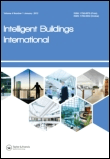
Intelligent Buildings International
Exploring Innovations in Intelligent Building DesignIntelligent Buildings International, published by Taylor & Francis Ltd, is a premier journal dedicated to advancing knowledge in the interdisciplinary domains of building construction, civil engineering, computer science applications, and planning. Since its inception in 2009, this journal has become a vital resource for researchers, professionals, and students, offering a platform for high-quality scholarly articles that explore innovative strategies and technologies in intelligent building design and efficiencies. With its significant impact factor reflected in its Q2 and Q3 quartile rankings across various related fields, and strong Scopus rankings placing it among the top journals in Geography, Building, and Civil Engineering, Intelligent Buildings International stands out for its commitment to fostering research that enhances the sustainability and functionality of contemporary architectural practices. Readers can access a wealth of articles that illuminate the complexities of smart building technologies and their implications for future construction practices, making it an essential addition to any academic library.
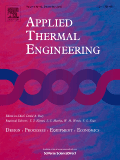
APPLIED THERMAL ENGINEERING
Exploring the forefront of thermal engineering breakthroughs.Applied Thermal Engineering is a leading international journal dedicated to the field of thermal engineering, published by Pergamon-Elsevier Science Ltd. With an impressive impact factor indicating its significance in the academic community, this journal focuses on innovative research and developments related to energy engineering, fluid flow, and transfer processes, as well as manufacturing and mechanical engineering. Being indexed in top quartiles (Q1) across multiple categories, it ranks exceptionally well on platforms like Scopus, ensuring that contributors reach a wide and relevant audience. The journal supports both open access and subscription options, promoting the dissemination of vital research findings from 1996 to 2024. With its commitment to advancing the discipline and implementing rigorous peer-review processes, Applied Thermal Engineering serves as an essential resource for researchers, industry professionals, and students aiming to stay abreast of the latest advancements and applied methodologies in thermal science.
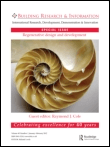
BUILDING RESEARCH AND INFORMATION
Driving excellence in construction research since 1991.BUILDING RESEARCH AND INFORMATION is a premier academic journal dedicated to the advancement of knowledge in the fields of Building and Construction as well as Civil and Structural Engineering. Published by Routledge Journals, Taylor & Francis Ltd, this journal boasts an impressive Q1 ranking in both categories as of 2023, emphasizing its reputation for disseminating high-quality research. Established in 1991, it has continually provided a vital platform for scholarly dialogue on innovative building practices, sustainable construction techniques, and cutting-edge engineering solutions, with ongoing contributions accepted until 2024. The journal is renowned for its extensive insights and interdisciplinary approach, and with a Scopus rank placing it in the 88th percentile for both building and construction engineering and civil and structural engineering, it presents an exceptional opportunity for researchers, professionals, and students to engage with and publish influential findings. While the journal is not open access, it remains a cornerstone for those aiming to deepen their understanding of contemporary challenges and trends in the built environment.
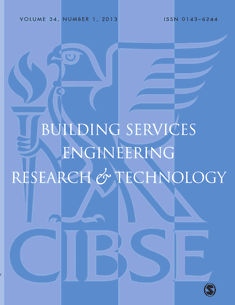
Building Services Engineering Research & Technology
Advancing Sustainable Solutions in Building Services EngineeringBuilding Services Engineering Research & Technology is a leading journal published by SAGE Publications Ltd, dedicated to advancing the field of building services engineering. With an ISSN of 0143-6244 and an E-ISSN of 1477-0849, the journal has established itself as a vital resource since its inception in 1980, operating as an essential platform for disseminating high-quality research and technological innovations up to 2024. The journal is well-respected within the academic community, reflected in its Q2 category ranking in Building and Construction and a commendable 67th percentile rank among the 223 journals in its field, according to Scopus. Although it does not offer open access, it provides extensive insights and rigorous studies that are invaluable for researchers, practitioners, and students alike. As a central hub for the exploration of cutting-edge methods and principles in building services, the journal aims to foster a better understanding of sustainable and innovative practices within the industry.